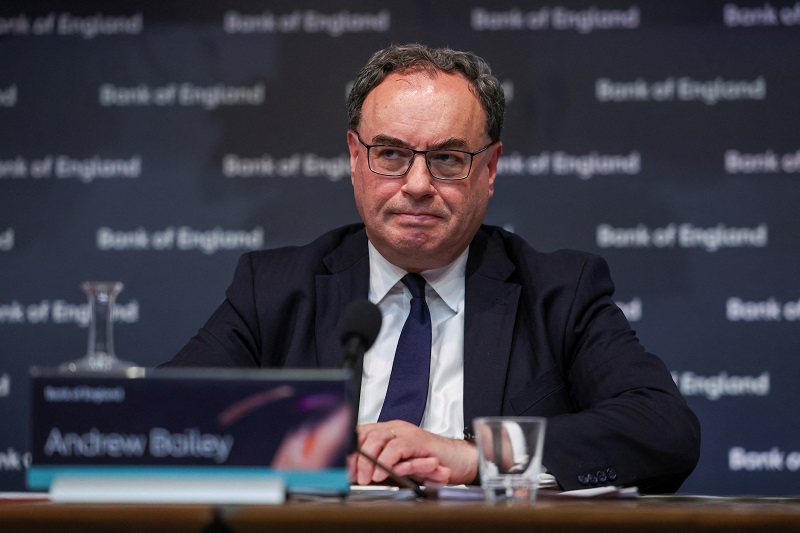Will the Bank of England raise interest rates further?
UK wage data was pretty shocking. It has raised speculation that the Bank of England could have to go further than previously expected when it comes to base rate hikes.

BoE Governor Andrew Bailey
>> A new conundrum facing the BoE
However, sterling hardly budged and that might suggest that we are reaching the point where rate hikes are more of a handicap than a help for the pound.
It is interesting to question the point where rate hikes no longer support currency strength, and may even start to cause weakness. For most G10 nations we are used to a situation in which actual rate hikes, or even just expectations of higher rates in the future usually generates some currency strength, at least temporarily. But we also know of situations often, but not exclusively, outside of the G10 where rate hikes produce no currency benefit at all and might even make a bad situation worse.
In Russia, for instance, we wait to find out if emergency, and very large, 350-bps rate hike can arrest the slide in the rouble in coming sessions. It seems as if many doubt that it can. However, it is probably clear why rate hikes might not help the rouble given factors such as the ongoing conflict in Ukraine, the slump in the economy, sanctions against Russia and more. But what about when countries that are not facing these sorts of difficulties push rates up but still see their currencies languish? What is the tipping point that makes investors decide that it is not wise to chase the rise in rates by purchasing the currency?
In Standard Bank’s view, there are presumably a number of factors at play here such as whether rate hikes can be expected to bring inflation under control and whether the adverse spillover effects, such as sharply increasing government financing costs in high-deficit economies, outweigh any FX carry advantage from the rate hike. In the UK, there’s absolutely no doubt that headline inflation will fall sharply in annual terms. This stems largely from base effects and was the reason why PM Sunak included a pledge to halve inflation this year when he made his five promises to the electorate at the start of the year. But this prospect does not obviate the need for rate hikes if underlying pressures, such as those in wages, not only persist, but also intensify. The difficulty as we see it for the UK – and the pound – in higher base rates lies in two areas.
The first is in terms of fiscal policy for, as the Standard Bank explained before, a much higher proportion of government debt is index-linked in the UK than its peers. Hence the rise in inflation has already been very costly for the exchequer and that probably makes the market sensitive as these costs rise even more with rate hikes.
>> The pound’s rally might not occur again in 2H23
A second, and more fundamental factor is that the tightness of the labour market, which is unlikely to change materially, makes it absolutely imperative that investment rises in both a rapid and efficient way in order to lift productivity. Because only if productivity increases can firms’ labour costs be held down in the face of strong wage growth. High interest rates clearly don’t help here but, in the Standard Bank’s view, it is not just the level of interest rates that is the problem but also the uncertain economic and political environment in the UK associated with factors such as the lingering headache that is Brexit and the very real prospect of a change in government next year.
A comparison between the US, for instance, where productivity is rising at a 1.3% annual rate, and the UK where it was just 0.1% in Q2 is just a hint that UK rate hikes to date, and those in the future, could have the sort of adverse spillover effects that no longer provide support for the currency because the market does not focus on the increased carry from higher rates but, instead, worries more about the adverse spillovers to the economy.
Of course, there are always going to be adverse spillovers from rate hikes, such as slower growth, but we are talking here about more fundamental roadblocks to the economy – and to the pound. The bottom line is that although data like yesterday’s wage numbers might have made the market look for more rate hikes in the UK, it does not make us look for a stronger pound.








